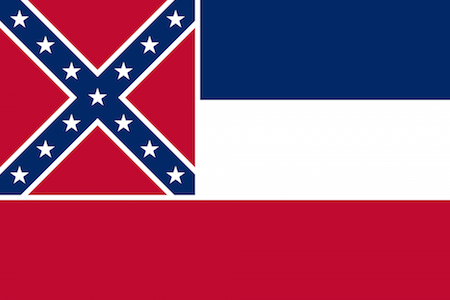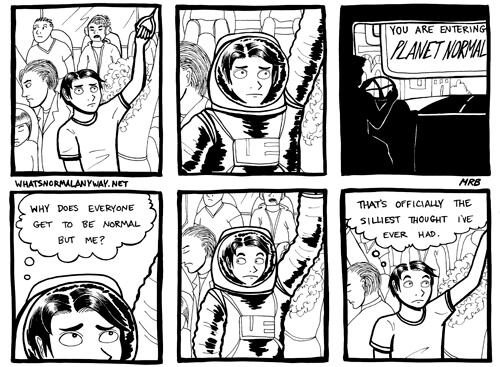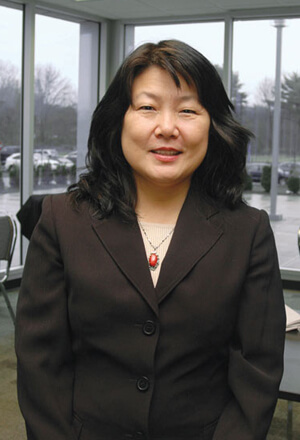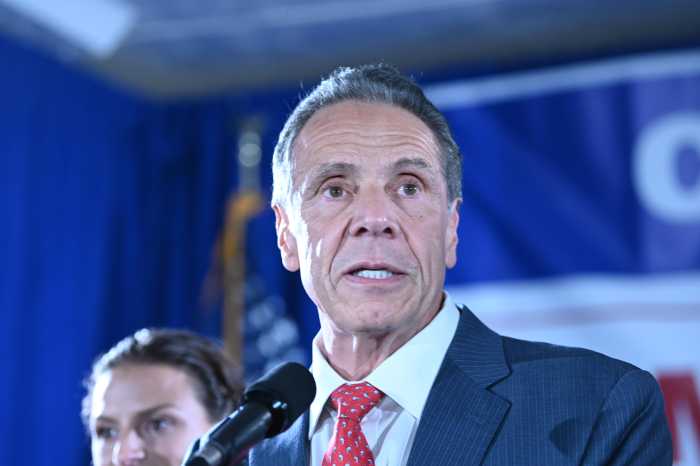As the dust settles on the Supreme Court’s unexpected decision not to take up the appeals of lower court rulings on marriage equality — and gay and lesbian couples are suddenly marrying in droves in once unexpected locales across the land — I thought I’d hunt for editorials blasting the decision and other LGBT judicial wins. As ever, I was searching for a concrete basis for my congenital paranoia, a justification to keep on playing the role of the downtrodden and the oppressed. Boy, was I in for a rude surprise!
Media Circus
Wading through dozens of disturbingly supportive editorials in heartland newspapers, I found:
Wyoming’s Casper Star-Tribune:
Wyoming “should get out in front of this social change and allow the weddings to happen now.”
New Orleans’ Times-Picayune:
“Same-sex couples in Louisiana are not allowed to adopt a child together. And it has been difficult for same-sex couples from other states who adopt children born in Louisiana to get a birth certificate listing them as parents. Couples married in other states are forced in Louisiana to file ‘single’ income tax returns. All of this is patently unfair.”
The Dallas Morning News: “This same Supreme Court recognized equality under the law in striking down the Defense of Marriage Act last year, which makes its passivity all the more perplexing. We can only hope the court seizes its next opportunity to lift same-sex marriage laws out of the gray twilight and presents an undeniable victory for a fundamental ideal.”
North Carolina’s Gaston Gazette: “The court could and should have ended any uncertainty by taking the cases it turned away on Monday and affirming the rulings of the lower courts in favor of gay marriage, which we believe to be a matter of equality in a free nation and not an issue for such government oversight.”
Colorado’s Loveland Reporter-Herald: “Someday American society may look back on gay marriage bans as well and wonder about the society that denied people’s rights to be married to those they loved. When people who love each other can work together in partnerships to build full lives, surely all of society will benefit.”
Finally, after I’d thoroughly nauseated myself with all this happy talk, I found just what I’d been searching for: an editorial that took an aggressive stance against not only the courts but in opposition to marriage equality itself. I found it in a marginal Baptist publication called the Pathway. Phew! I was beginning to fear that I’d have to turn optimistic.
“Outrageous, Arrogant Ruling by Judge,” by Don Hinkle, is a model of impotent wrath. ‘This is judicial malfeasance and a slap in the face to Missouri voters,” Hinkle rails. “To say there is no rational basis for the ban is judicially irresponsible if not irrational. Moreover the Bible — that defines marriage as a union between a man and a woman — is not irrational. Nor are we who believe the Bible to be the words of God. If we are irrational, then it will be easier for judges like [State Circuit Court Judge J. Dale] Youngs to label us bigots and deny us our religious liberty whenever we express opposition to same-sex marriage.”
I’ll refrain from addressing Hinkle’s concern over society viewing him and his kind as “irrational,” other than to note the old adage that if it looks like duck shit and smells like duck shit it’s very likely to be duck shit.
But I must call attention to Hinkle’s dismay over being labeled a bigot. First of all, he was not so labeled. Nor has his religious liberty been denied. At all. He and his kindred coreligionists are still free to believe in a God who must have just slipped up when he created gay men and lesbians in His own image (Bad God! Bad God!). No, Hinkle’s brand of scorched-earth Baptists are just no longer allowed to make their embittered private belief system the law of the land. It must be heartbreaking to have the power and authority you assumed was your — you should pardon the expression — God-given right ripped from your hands and distributed more or less equally throughout the population.
But let me be clear: the LGBT community doesn’t hate you, Mr. Hinkle. We only hate your foul, foul sins.
Seven Brothers for the Seven Sisters? We can now add the New York Times Magazine to the list of major publications that have featured intelligent, supportive articles about trans folks as cover stories. (I’ve written previously about the ways that Time and New York handled the subject.) The Times story — “Men of Wellesley,” by Ruth Padawer — is a sensitive, in-depth look at the complex issues raised by transgender students who transition during their undergraduate years at women’s colleges, Wellesley in particular. How do women’s colleges like Bryn Mawr, Smith, and Wellesley deal with the fact that after hundreds of young women matriculate every year, some of them begin living as men before graduation? Do trans men offer a moral and ethical challenge to these colleges, or do they simply not belong there after transitioning?
The students Padawer interviewed all come off as thoughtful, analytical scholars who have used the superb education they received — or continue to receive — at Wellesley to inform their experience of transitioning. It’s the administrators who seem skittish and uncomfortable.
But that’s to be expected. Leaders of women’s colleges must tread a fine line between accepting young women whose identities may change during their four years at college and placating and reassuring alumnae, many of whom remained horrified even by the lesbian populations of their alma maters. Alumnae support is vital to the survival of these women’s colleges; offending major donors is a big no-no.
One aspect of Padawer’s coverage of college sex and gender politics struck me as both finely spun and slightly ludicrous. It was also recognizable to me from my own experience, though from some time ago. It’s been years since I taught the — oh, I must say it — wildly popular Sex and Gender on Film course at Haverford, my own alma mater, and I’d forgotten just how fraught the emotional lives of college students can be. Everything is a crisis! One false move by a professor can result in a near riot in the classroom. A single letter to the editor in a college newspaper can send emotionally overwrought students into hysteria.
Padawer takes particularly delicate care when discussing whether trans men at Wellesley feel “welcomed” by the school; she also questions whether Wellesley’s women feel “welcomed” as well at a college that promised them a community of women but actually delivers a couple of guys as part of the deal. A student election assumes earth-shattering consequence when the only candidate left standing is a white trans man. Emotions run high.
But the tale and the overwrought emotions it generates only prove once again that in college one learns as much outside the classroom as in it — maybe more.
I’ll end with a true story that bears only partially on the subject at hand but the payoff is so good I can’t help but tell it. A fellow Haverfordian named Brian was rooming at Bryn Mawr circa 1979 at the peak of the bi-college cooperation. (Haverford had just begun admitting women, while Bryn Mawr was — and remains — all female.) One day Brian donned his bathrobe, entered the nearest bathroom, and began to brush his teeth. A flushing sound was heard, a stall door opened, and out came Katharine Hepburn.
Bryn Mawr’s most famous alumna was appalled at the sight of Brian in what she’d assumed was a women-only bathroom in a women-only dorm on a women-only campus and said, “Younnnggg maaannn! Whaat dooo you think you are doo-iiing?” “Brushing my teeth?” Brian answered, at which point the Oscar-winning actress gasped, said “Well I’ve never!” and exited the room in a rage.
Something tells me that Ms. Hepburn, be-trousered though she usually was, would not be terribly happy to discover that Bryn Mawr’s student population now includes a number of trans men.


































